
Natural remedies for post covid fatigue are gaining attention as millions of people around the world continue to grapple with lingering symptoms after recovering from COVID-19.
This condition, often referred to as long Covid or post-acute sequelae of SARS-CoV-2 infection (PASC), can be quite debilitating. It's not just about feeling a bit tired - it's an exhaustion that doesn't improve with rest and may even worsen with physical or mental activity.
As the world continues to grapple with the COVID-19 pandemic, many individuals are seeking natural remedies for post-COVID fatigue, which has left countless people struggling with lingering symptoms and a diminished quality of life.
Today, we'll examine how:
- Natural remedies, such as a plant-based diet and herbal medicine, focusing on key herbs that improve energy balance and cognitive function.
- Balancing inflammation with nutrients plays an essential role in recovery from long-haul COVID symptoms.
- A root cause approach to address underlying causes rather than just treating symptoms can help increase energy levels.
- The role of vitamin D aids in the recovery from post-COVID fatigue along with its impact on immune system function.
- Fermented foods benefit gut health and improve fatigue
- Anti-inflammatory, Immune-stimulating, and adaptogenic herbs like Ashwagandha, Rhodiola Rosea, and Eleuthero can help your body recover faster.
What is Post Covid Fatigue?
Post-COVID fatigue, often referred to as "long COVID" or "post-acute sequelae of SARS-CoV-2 infection (PASC)," describes a range of symptoms that continue for weeks or months after the acute phase of a COVID-19 infection has resolved.
Fatigue is a prominent symptom, but patients with long COVID can present with a wide array of symptoms.
Is Long COVID and Post COVID Fatigue the Same Thing?
"Long COVID" and "post-COVID fatigue" are terms that are sometimes used interchangeably, but they can also refer to specific aspects of post-acute sequelae experienced by some individuals following a SARS-CoV-2 infection.
- Post-COVID Fatigue: This specifically refers to the profound and persistent tiredness or exhaustion that doesn't improve with rest, and it's one of the hallmark symptoms reported by many individuals after recovering from the acute phase of the infection. It mirrors the fatigue often seen in conditions like chronic fatigue syndrome/myalgic encephalomyelitis (CFS/ME).
- Long COVID: This is a broader term that encompasses a wide range of lingering symptoms, of which fatigue is just one. People with long COVID can experience a variety of symptoms, including but not limited to respiratory issues, cardiovascular problems, cognitive impairments (often termed "brain fog"), and many others.
In essence, post-COVID fatigue can be viewed as a subset of long COVID.
However, it's essential to understand that while many individuals with long COVID do experience fatigue, not all will, and many will also have additional symptoms beyond fatigue.

Symptoms of Post Covid Fatigue
- Profound Fatigue: Overwhelming tiredness that doesn't improve with rest. It can be so severe that it affects daily activities.
- Muscle and Joint Pain: Aching or discomfort in muscles or joints, not related to any physical exertion.
- Headaches: Persistent or recurrent headaches, different from any previous patterns of headaches.
- Brain Fog or Cognitive Dysfunction: Difficulty concentrating, memory problems, and feeling mentally "slow."
- Sleep Disorders: Insomnia, unrefreshing sleep, or waking up frequently.
- Shortness of Breath: Difficulty breathing during light activity or even at rest.
- Heart Palpitations: Sensations of a racing heart or fluttering in the chest.
- Chest Pain: Pain or discomfort in the chest, not necessarily linked to cardiac problems.
- Dizziness or Lightheadedness: Feeling faint or unstable, sometimes linked to postural orthostatic tachycardia syndrome (POTS).
- Depression, Anxiety, and Mood Changes: Emotional and psychological challenges that weren't present before the infection.
- Tinnitus or Ear Ringing: Persistent or recurrent ringing or buzzing in the ears.
- Loss of Taste or Smell: This symptom can persist long after other symptoms have resolved.
- Hair Loss: Increased hair shedding or hair thinning, usually temporary.
- Gastrointestinal Symptoms: Nausea, diarrhea, loss of appetite.
- Skin Manifestations: Rashes, 'COVID toes' (red or purple discoloration on fingers or toes), or other skin lesions.
- Temperature Regulation Issues: Chills, sweats, or fluctuating body temperature.
- Persistent Cough: A cough that lingers for weeks or months after the acute phase of the infection.
Symptoms of Long-Covid
The ongoing COVID-19 pandemic has introduced us to a new medical phenomenon known as long-haul COVID, Long COVID, or chronic COVID.
These terms are used for post-COVID patients who continue to experience lingering symptoms weeks or even months after recovering from the acute viral infections caused by the SARS-CoV-2 virus.
Long-COVID, also referred to as post-viral fatigue, can affect multiple body systems, leading to a wide range of symptoms that may not be present all the time but come in waves.
Its symptoms are the same as those listed above, with a bit more emphasis on the following:
Physical Symptoms
- Profound fatigue: Persistent tiredness despite adequate rest could indicate autonomic nervous system dysfunction associated with long-COVID.
- Breathing difficulties: Some individuals might struggle with breathlessness due to residual damage caused by the COVID-19infection.
Mental and Psychological Symptoms
- Cognitive impairment: Often termed 'brain fog', this symptom involves difficulty concentrating or remembering things.
- Anxiety and depression: Many people report feelings of anxiety or low mood during their recovery period.
In addition, some patients might also suffer from poor sleep quality, which further exacerbates their condition.
Other symptoms of Long COVID include:
- Abdominal pain
- Breathlessness
- Brain fog
- Changes in the menstrual cycle
- Chest pain or tightness
- Concentration problems
- Depression and anxiety
- Diarrhea
- Dizziness
- Extreme tiredness
- Fatigue
- Heart palpitations
- Immune dysregulation may trigger other autoimmune conditions, particularly myalgias
- Imbalance in microbiome
- Joint pain
- Loss of appetite
- Memory problems
- Mitochondrial dysfunction
- Nausea
- Organ damage from micro-clot
- Oxidative stress and unresolved inflammation
- Pins and needles
- Post-viral fatigue like myalgic encephalomyelitis/chronic fatigue syndrome (ME/CFS)
- Problems sleeping
- Skin rashes
- Tinnitus or earache
Vision and Vestibular Symptoms of Long COVID
Both vision and vestibular symptoms have been reported in some individuals experiencing post-COVID fatigue or Long COVID.
While the precise mechanisms underlying these symptoms are still being researched, here's a summary of the commonly reported vision and vestibular symptoms:
Vision Symptoms:
- Blurred Vision: Some individuals report intermittent or persistent blurred vision.
- Light Sensitivity (Photophobia): An increased sensitivity to light can make it uncomfortable or painful for individuals to be in brightly lit environments.
- Dry Eyes: Symptoms can include itchiness, redness, and a gritty feeling in the eyes.
- Floaters: Some people notice an increased presence of spots or lines floating in their field of vision, known as floaters.
- Difficulty Focusing: Some have trouble adjusting their focus from near to far objects or vice versa.
- Eye Pain: This can be a deep ache or a surface irritation, similar to what is felt with conjunctivitis or other eye diseases.
Vestibular Symptoms:
The vestibular system, located within the inner ear, helps regulate balance and spatial orientation. Dysfunction of this system can lead to a range of symptoms.
- Dizziness: This is a common complaint, which can range from a light-headed feeling to more severe spinning sensations.
- Vertigo: A false sensation that either the person is spinning or the surroundings are spinning around them.
- Balance Problems: Difficulty maintaining balance, especially when walking, standing, or during sudden movements.
- Nausea: Due to dizziness or vertigo, some individuals can feel nauseated.
- Tinnitus: Ringing or buzzing in the ears, which can be persistent or intermittent.
- Sensitivity to Positional Changes: Some people with vestibular symptoms feel dizziness or vertigo with specific changes in head position.
- Difficulty with Complex Visual Environments: Some individuals report feeling overwhelmed or dizzy in busy visual environments, such as crowded stores or when watching fast-paced videos.
How to Discern Between Vision and Vestibular Symptoms in Long COVID
Vision-Related Symptoms:
One way to discern if you're dealing with vision-related symptoms due to long COVID is by observing the progression of symptoms throughout the day. Many individuals who suffer from these symptoms tend to wake up feeling relatively normal, with an absence of headaches or dizziness.
However, as the day progresses, they may find it increasingly challenging to maintain this state of normalcy. The reason behind this lies in the fact that while our eyes get the necessary rest during the night, they can become fatigued as the day unfolds.
This growing tiredness can lead to a recurrence of symptoms such as headaches, blurred vision, and dizziness. In essence, if symptoms tend to worsen as the day goes on, it could indicate a vision-related issue.
Vestibular-Related Symptoms:
The dynamics of vestibular symptoms can be somewhat opposite to that of vision-related issues. Under normal circumstances, our vestibular system—a critical component of our inner ear responsible for balance and spatial orientation—is well-aware of our sleep status.
This is because, during sleep, our head remains largely stationary, signaling the vestibular system to reduce its activity. The "non-adaptive fibers" in the utricle and saccule, parts of the vestibular system involved in orientation and balance, take the primary role during this phase.
However, for individuals suffering from long COVID, this intricate balance appears to be disrupted. Their vestibular system might not modulate its activity as efficiently during sleep.
As a result, they may experience difficulties like insomnia due to the inability to fall asleep easily. Moreover, upon waking, they might be immediately confronted with symptoms like headaches, dizziness, and nausea. This morning onset of symptoms suggests a possible vestibular dysfunction.
Whichever you may be experiencing, they both lead to extreme post COVID fatigue.
Fatigue following a bout with COVID-19 is more than just feeling tired. It's a complex condition linked to various factors that can linger for months after recovery. Understanding these causes gives us insight into potential remedies.
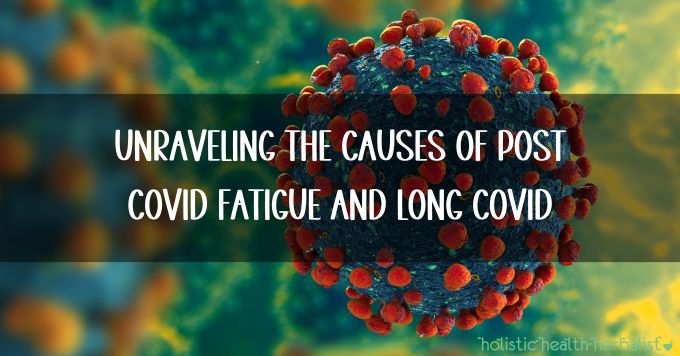
Unraveling the Causes of Post COVID Fatigue and Long COVID
1. Autonomic Nervous System and Viral Fatigue
A key factor in this matter is the autonomic nervous system not working correctly. When it doesn't function as it should, an exaggerated immune response may occur, leading to chronic inflammation and increased feelings of fatigue.
This heightened inflammatory response often ties back to gut health issues since the state of our microbiome influences systemic inflammation levels. An overactive immune response can disturb this delicate balance, exacerbating viral fatigue symptoms.
Oxidative stress also comes into play here—it damages cells and hampers normal physiological functions, which adds fuel to the fire when battling post-Covid exhaustion.
2. The Role Of Neurovascular Coupling Dysfunction And Tiny Blood Clots
Beyond oxidative stress and an unruly immune system, other elements are at work too—neurovascular coupling dysfunction being one such culprit behind persistent tiredness post-infection.
This disorder might result in tiny blood clots or affect endothelium (the lining inside our blood vessels), both contributing towards feelings of constant weariness even after recovering from Covid 19.
Further studies on viruses' impact on endothelium offer additional insights into how these factors shape post-viral fatigue patterns.
With all we've learned about oxidative stress, gut health disruptions, neurovascular coupling dysfunctions, and their roles in causing prolonged fatigue after surviving COVID-19 infection, it's clear that managing long-term virus-induced lethargy needs more than simple rest.
3. Persistent Infection
The idea of persistent infection suggests that even after the acute phase of a COVID-19 infection, remnants or particles of the SARS-CoV-2 virus might remain within the body, potentially causing ongoing symptoms.
A study conducted by the U.S. National Institutes of Health involving tissue analysis from 44 COVID-19 patients discovered viral RNA in several areas, including the brain, muscles, gastrointestinal tract, and lungs.
The presence of this RNA suggests that some parts of the virus might linger, even after recovery from the initial infection.
Now, researchers are on a mission to understand the link between this residual viral presence and the manifestation of long COVID symptoms.
Understanding this connection could be instrumental in developing targeted treatments for long COVID.
4. Exaggerated Immune Response
The immune system is our body's primary defense mechanism against infections. Once an infection has been combated, the immune response typically subsides.
However, in some long COVID patients, the immune system appears to remain on an elevated alert, failing to return to its baseline state. This prolonged and exaggerated immune response can lead to chronic inflammation.
Chronic inflammation, in turn, has the potential to instigate a cascade of health issues, manifesting as both cognitive and physical symptoms, and further complicating the recovery process for some individuals.
5. Nerve Damage
Emerging research has hinted at the possibility that damage to the vagus nerve, a vital nerve extending from the brain to the torso, could be a significant contributor to long COVID symptoms. This nerve is integral to numerous bodily functions.
Researchers have identified various abnormalities in the vagus nerve of long COVID patients, such as nerve thickening, difficulties in swallowing, and symptoms suggesting compromised breathing.
Given the vagus nerve's pivotal role in regulating the autonomic nervous system (ANS), it's conceivable that any damage or disruption to this nerve would lead to symptoms mirroring ANS dysfunction, like abnormal heart rates, dizziness, and gastrointestinal issues.
6. Change in Habits Post-COVID
The far-reaching implications of the COVID-19 pandemic have not only been biological but also societal and behavioral. During lockdowns and periods of isolation, many people experienced significant changes in their daily habits.
A shift towards diets predominated by snacks and foods lacking nutritional density was common. These poor dietary choices can easily lead to feelings of fatigue and malaise.
Furthermore, the pandemic ushered in widespread sleep disturbances, exacerbating feelings of anxiety, depression, irritability, and cognitive difficulties like concentration lapses.
Paired with diminished physical activity due to lockdowns and movement restrictions, these altered habits resulted in an overall degradation in quality of life.
For individuals already grappling with the lingering effects of a COVID-19 infection, these lifestyle changes have potentially intensified their struggles.
Other possible causes include:
- Altered tryptophan metabolism
- Dysautonomia
- Gut-brain axis and microbiome dysregulation
- MAST cell activation
- Pathological inflammation
- Persistent Endotheliopathy
- Reactivation of Epstein Barr Virus
Who is Most at Risk for Post COVID Fatigue/Long COVID?
It's important to note that while these factors might increase the risk for long COVID, they do not guarantee its development. Likewise, individuals not fitting these categories can still develop long COVID.
The intricacies of long COVID and its risk factors continue to be a significant area of study, and our understanding might evolve with further research.
What we do know is that those who exhibit the following traits are at higher risk for developing post COVID fatigue.
1. Presence of five or more of the long COVID symptoms
Studies have found that individuals who experienced a higher symptom burden during their acute COVID-19 infection are more likely to develop long-term symptoms.
This may be because a more severe initial reaction might indicate a stronger or more prolonged immune response, which could contribute to persistent symptoms.
2. Prior history of Epstein Barr virus or cytomegalovirus infection
Both of these viruses can cause prolonged symptoms and have been associated with conditions like chronic fatigue syndrome. Having a history of such infections could potentially make one's immune system more susceptible to the prolonged effects seen in long COVID.
3. Low Vitamin D
Vitamin D plays a crucial role in immune function. Deficiency in vitamin D has been linked to increased susceptibility to infections and poor recovery.
Therefore, low levels might contribute to an inadequate or inappropriate immune response to the virus, leading to persistent symptoms.
4. Existing inflammation
Chronic inflammation can weaken the body's immune response and its ability to recover from illnesses. People with chronic inflammation might be more susceptible to long-term complications following a COVID-19 infection.
5. Female
Some studies have found that women, especially those in certain age groups, might be more prone to long COVID than men. The reasons are not entirely clear but could be related to hormonal differences affecting immune response.
6. Older age
As with many illnesses, age can be a factor in recovery time and the risk of complications. Older individuals often have a slower immune response and may have more co-morbidities, making them more susceptible to prolonged symptoms.
7. Chronic disease co-morbidities, especially hypertension
Having chronic conditions, such as hypertension, can complicate the body's response to infections. These conditions might make the body more vulnerable to the virus and increase the likelihood of developing long-term symptoms.
8. Asthma
Respiratory conditions like asthma could make individuals more susceptible to the respiratory complications of COVID-19, potentially leading to prolonged lung-related symptoms.
9. Gut dysbiosis
The health of our gut and its microbiome plays a crucial role in overall health and immune function. Gut dysbiosis, an imbalance in the gut's microbial community, might affect how the body responds to and recovers from infections. Recent research also points to a potential connection between gut health and the severity of COVID-19 symptoms.

Natural Remedies for Post COVID Fatigue and Long COVID
Both long COVID and PCF represent conditions where the body doesn't seem to "reset" after a viral infection, leading to chronic symptoms. Given their similarities, using our knowledge of PVFS as a foundation for treating long COVID seems a reasonable approach.
Three Holistic Goals for Treatment
Reduce Systemic Inflammatory Responses
- Both long COVID and PVFS have been associated with heightened inflammatory responses. Chronic inflammation can cause a cascade of symptoms, from pain and fatigue to cognitive disturbances.
- Anti-inflammatory herbs and essential oils, dietary interventions that focus on anti-inflammatory foods, and lifestyle adjustments such as stress reduction and moderate exercise (where appropriate) could be beneficial. Natural anti-inflammatory agents, like omega-3 fatty acids can also reduce inflammation.
Support Immune System Regulation
- The immune system's dysregulation appears to be a hallmark of both conditions. Instead of returning to a resting state post-infection, the immune system remains hyperactive, potentially contributing to ongoing symptoms.
- Immunomodulatory treatments, which help regulate the immune system, could be beneficial. This could include certain supplements like Vitamin D or zinc, or even therapies that modulate the immune response. Probiotics should also be used, given the gut's role in immune regulation.
3. Rebalance the Autonomic Nervous System (ANS)
- The ANS controls many of our body's unconscious functions, like heart rate, digestion, and temperature regulation. Both long COVID and PCF can disrupt ANS function, leading to symptoms like dizziness, irregular heartbeats, and gastrointestinal issues.
- Techniques like biofeedback, deep breathing exercises, and meditation can help rebalance the ANS. Additionally, targeted physical therapy might be beneficial.
Dietary Support for Post COVID Fatigue Recovery
A balanced diet, rich in essential nutrients, plays a crucial role in maintaining overall health. While direct research on dietary interventions for long COVID remains scarce, the principles derived from studies focused on inflammation, immune regulation, and autonomic nervous system balance can guide dietary recommendations.
Benefits of a Plant-Based Diet in Combating Post-COVID Fatigue
Adopting a primarily plant-based diet can help reduce inflammation and boost immune function. This doesn't necessarily mean eliminating animal products entirely. Incorporate moderate amounts of lean meats, ensuring plants dominate your plate.
Eating a variety of fruits, vegetables, whole grains, legumes, nuts, and seeds provides essential nutrients that support overall well-being during recovery from COVID-19. A plant-based diet is rich in antioxidants, which help reduce inflammation caused by the virus.
It also promotes better digestion due to its high fiber content, which helps maintain stable blood sugar levels - an important factor when dealing with post-viral fatigue.
- Fermented Foods: Fermented foods such as yogurt, kefir, sauerkraut, kimchi, and kombucha are a great source of probiotics that help maintain the balance of gut bacteria for optimal health.
- Fruits: Berries like blueberries or strawberries are packed with vitamins C & E which boost immunity;
- Vegetables: Leafy greens such as spinach or kale contain iron necessary for optimal oxygen transportation;
- Nuts & Seeds: Almonds or chia seeds offer healthy fats that support brain function;
- Whole Grains: Brown rice or quinoa deliver complex carbohydrates for sustained energy release throughout the day.
Diversity is Key
Aim for variety. Rotate fruits and vegetables based on seasonal availability, ensuring a constant intake of different vitamins, minerals, and antioxidants.
Prioritize Dietary Elements High in:
- Fibre: Foods like fruits, vegetables, and legumes foster a thriving gut microbiome, influencing mood and immune function.
- Plant Antioxidants and Polyphenols: Consuming a colorful array of fruits and vegetables, along with herbsand spices, can:
- Diminish inflammation
- Boost cerebral blood flow, mitigating brain fog
- Elevate cellular energy metabolism, enhancing vitality.
Limit or Eliminate Intake of:
- Saturated fats, industrial seed oils (like sunflower, canola), processed foods, refined sugars, alcohol, and excessive caffeine.
Nutrients Beneficial for Post COVID Fatigue and Long COVID:
- Quercetin: Found in apples, plums, broccoli, onions, and tea, quercetin offers a variety of benefits:
- Acts as a dietary MAO inhibitor, preserving neurotransmitters, thereby potentially aiding mood and focus.
- Demonstrates anti-viral and anti-inflammatory properties, beneficial in viral infection phases.
- May suppress MAST cell activation, potentially reducing allergic reactions and long COVID symptoms.
- You can get my favorite quercetin supplement HERE.
- Omega-3 Fatty Acids:
- Balancing omega-3 with omega-6 fats can regulate inflammation.
- Reducing omega-6 intake (commonly found in industrial oils and processed foods) while increasing omega-3 sources like wild-caught fish, chia seeds, and walnuts can optimize this balance.
- You can also get high-quality Omega-3s from a fish oil supplement like this one.
- Tryptophan: Essential for serotonin and melatonin synthesis, tryptophan can influence mood, sleep, and energy. Sources include:
- Almonds
- Bananas
- Cashews
- Chicken
- Cottage cheese
- Lentils
- Pistachios
- Pumpkin and sesame seeds
- Tinned tuna
- Turkey
Vitamin D and the Immune System:
Research has shown links between vitamin D deficiency and the severity of COVID-19 symptoms experienced by patients.
The Role of Vitamin D in Post-COVID Recovery
Studies have shown that individuals with low levels of this essential nutrient are more susceptible to infections and may experience more severe symptoms when infected with COVID-19 (source).
- Immune Regulation: Vitamin D plays a critical role in modulating the immune system. It can enhance the pathogen-fighting effects of monocytes and macrophages — important components of the immune response — and decrease inflammation.
- Potential Protective Effects: There's been research suggesting that individuals with adequate vitamin D levels might have a reduced risk of contracting COVID-19 and experiencing severe symptoms. However, more research is needed to establish a definitive link.
- Role in Energy Production: Vitamin D has a known role in bone health and calcium metabolism, but it's also been implicated in cellular energy production. A deficiency in vitamin D can lead to muscle weakness and fatigue.
- Chronic Fatigue and Vitamin D: Several studies (not limited to post-COVID cases) have shown a correlation between chronic fatigue syndrome (CFS) and vitamin D deficiency. It's hypothesized that supplementation may alleviate some symptoms of fatigue in those who are deficient.
- Brain Function and Mood: Vitamin D receptors are present in the brain, and the vitamin may play a role in neurophysiological functions. Deficiency can potentially lead to mood alterations, cognitive impairments, and an overall sense of unwellness, all of which can contribute to feelings of fatigue.
Maintaining an optimal level of vitamin D is essential for a healthy immune system, especially during post-COVID recovery.
To ensure optimal levels during your post-COVID recovery journey, consider consuming foods rich in vitamin D, such as fatty fish (salmon, mackerel), fortified dairy products (milk, yogurt), eggs, or taking supplements.
- Fatty fish: salmon, mackerel
- Fortified dairy products: milk, yogurt
- Eggs
- Vitamin D supplements (this one is my favorite)
Is Vitamin D Deficiency Causing Your Acne?
Sleep and Post COVID Fatigue Recovery
The Role of Inflammation:
One of the unfortunate after-effects of COVID-19 for many individuals is an enduring inflammatory response. This lingering inflammation, specifically neuroinflammation, wreaks havoc on our sleep patterns.
Impact on Sleep Architecture:
The brain's sleep architecture is a reference to the pattern and cycle of different sleep stages we undergo each night, from light sleep to the deeper REM and non-REM stages.
Neuroinflammation resulting from COVID-19 seems to impact these patterns adversely, particularly diminishing the slow-wave, or deep, sleep stage. This stage is crucial as it's when our body undergoes restoration, repairs tissue, and strengthens the immune system.
Sleep Needs Post-COVID:
If you're grappling with the effects of long COVID, you might find that your sleep requirements have increased. This isn't unusual, given that sleep is a powerful tool in aiding recovery and reducing inflammation.
Making an effort to get ample, restful sleep, especially slow-wave sleep in the earlier part of the night, can be instrumental in helping the immune system recalibrate and curb inflammation.
Enhancing Sleep Quality:
Quality sleep can significantly bolster the body's recovery process. Here are some practical steps to foster better sleep:
- Embrace Natural Light: Your body's internal clock, or circadian rhythm, is greatly influenced by exposure to natural light. Spend at least 30 minutes outside every day without sunglasses. This helps in melatonin production during the day, which the body releases as darkness sets in, signaling that it's time to sleep.
- Limit Screen Time: The blue light emitted from screens can interfere with melatonin production, delaying sleep onset. Create a habit of setting aside your electronic devices an hour before bedtime to support your body's natural sleep-wake rhythm.
- Opt for Dim Lighting: In the evening, particularly an hour before you plan to sleep, dim the lights or use low-light lamps. This change in ambient lighting can stimulate the production of melatonin, preparing your body for a restful night.
- Sleep Environment: Make your bedroom conducive to sleep. This means a comfortable mattress and pillows, dark curtains, and perhaps some soothing background noise like white noise or soft music. The cooler temperature in the bedroom also tends to promote better sleep.
Natural Sleep Aids - The Herbalist's Way
Sleep Support with Magnesium Salts & Lavender Essential Oil
For individuals struggling with sleep disturbances due to stress or other factors related to their condition, magnesium bath salt and lavender oil may prove beneficial in promoting relaxation before bedtime.
Using Magnesium Salts to Promote Relaxation Before Bedtime
Magnesium is an essential mineral that plays a crucial role in various bodily functions, including muscle relaxation and nerve function.
A deficiency in magnesium can lead to increased levels of anxiety and difficulty sleeping. Studies have shown that using magnesium salts, such as Epsom salt baths or topical applications like creams and lotions containing magnesium chloride, can help promote relaxation by increasing the body's absorption of this vital nutrient.
- Epsom Salt Baths: Add 1-2 cups of Epsom salt into a warm bath and soak for at least 20 minutes before bedtime.
- Magnesium Creams/Lotions: Apply a topical cream or lotion containing magnesium chloride on your skin before going to bed; it will be absorbed through the skin while you sleep.
The Benefits of Lavender Essential Oil on Sleep Quality
Lavender essential oil has been used for centuries as a natural remedy for insomnia due to its calming properties. The scent from lavender essential oil helps reduce feelings of anxiety and stress which are common triggers for poor sleep quality.
In fact, research has found that inhaling lavender oil can improve both the duration and quality of sleep. One study showed that participants who inhaled lavender oil before bedtime experienced a significant improvement in their sleep quality compared to those who did not.
To incorporate lavender oil into your nighttime routine, try the following methods:
- Aromatherapy Diffuser: Add a few drops of lavender essential oil to an aromatherapy diffuser and place it in your bedroom for at least 30 minutes before you go to bed.
- Lavender Pillow Spray: Mix several drops of lavender essential oil with distilled water and spray onto your pillowcase or bedding for a calming scent as you drift off to sleep.
The Benefits and Properties of Lavender
Incorporating magnesium salts and lavender oil into your nightly routine can provide much-needed support for individuals struggling with post-COVID fatigue-related sleep disturbances.
These natural remedies work together holistically by promoting relaxation, reducing anxiety, and improving overall sleep quality during this challenging recovery period.

Herbs as Natural Remedies for Post COVID Fatigue
Herbs help improve energy balance and address cognitive and autonomic nervous system dysfunction commonly experienced by those suffering from long COVID.
Immune Tonics for Long COVID Recovery
Immune tonics are specialized herbs that are known to bolster and modulate the immune system, ensuring it operates at its peak. When dealing with conditions like long COVID, a finely tuned immune system can be a cornerstone of recovery.
Astragalus (Astragalus membranaceous)
Origin and Usage: Astragalus is a prominent root in Traditional Chinese Medicine (TCM) and has been used for millennia to invigorate and rehabilitate the body, especially after a bout of illness.
Key Benefits:
- Fatigue Combatant: Astragalus is renowned for its ability to combat fatigue, rejuvenating the body's energy reserves.
- Immune Modulation: The herb can prevent immune system hyperactivity, thus reducing allergy symptoms.
- Cardiovascular Health: Astragalus can act as a tonic for the cardiovascular system, promoting heart health.
- Potential in Long COVID: Astragalus might compensate for some ACE2 function loss instigated by COVID-19.
How to Use Astragalus: Beyond its medicinal liquid extract form (tincture) or capsule form, astragalus is often added sliced to soups, broths, and stocks, integrating its health benefits seamlessly into meals.
Andrographis (Andrographis paniculata)
Origin and Background: Andrographis, often referred to as "King of Bitters" for its intense taste, is a plant native to South Asian countries. It has been a staple in traditional medicines for its myriad health benefits.
Potential Benefits for Post-COVID Fatigue:
- Immunomodulatory Effects: Andrographis has a long-standing reputation for bolstering the immune system. Its immune-enhancing properties may be valuable for post-COVID individuals, helping them recover more efficiently and perhaps offering some protection against secondary infections.
- Anti-inflammatory Benefits: Chronic inflammation might play a role in post-COVID fatigue. Andrographis's anti-inflammatory attributes could help reduce systemic inflammation, potentially easing fatigue symptoms.
- Liver Support: Post-COVID recovery might place a strain on various organs, including the liver. The hepatoprotective effects of Andrographis can support liver function, ensuring the efficient removal of toxins, which can contribute to fatigue if accumulated.
- Respiratory Health: Many individuals recovering from COVID-19 report lingering respiratory symptoms. Andrographis has traditionally been used to treat respiratory issues, which could be beneficial in this context.
How to Use Andrographis: Andrographis is often taken as a tablet.
How to make Astragalus Tincture
Bupleurum (Bupleurum chinense)
Origin and Background: Bupleurum is a herbaceous plant native to East Asia and parts of Europe. It has been an essential component of Traditional Chinese Medicine (TCM) for thousands of years and is primarily recognized for its liver-supporting and immune-modulating properties.
Potential Benefits for Post-COVID Fatigue:
- Liver Health: The liver plays a vital role in energy production and toxin elimination, both of which can influence fatigue levels. Bupleurum's hepatoprotective attributes may help support optimal liver function, ensuring energy production isn't compromised and toxins don't accumulate to levels that can exacerbate fatigue.
- Anti-inflammatory Benefits: Chronic inflammation is believed to contribute to post-COVID fatigue. Bupleurum possesses anti-inflammatory properties which might help mitigate this inflammatory response, alleviating some fatigue symptoms.
- Immune System Support: Post-COVID fatigue might be tied to ongoing immune system challenges. The immune-regulating properties of Bupleurum can potentially offer a balanced and efficient immune response, which may aid in recovery.
- Mood and Stress Regulation: Bupleurum is often combined with other herbs in TCM formulas to address emotional disturbances, like irritability. A stable mood and reduced stress can influence perceptions of fatigue and overall well-being in post-COVID patients.
How to Use Bupleurum: Bupleurum is often used as a tincture.
Eleuthero (Eleutherococcus senticosus)
Origin and Usage: Also once known as Siberian ginseng, Eleuthero is another gem from the TCM vault, recognized for its gentle, restorative properties.
Key Benefits:
- Immune and Inflammatory Response: Eleuthero serves as both an immune tonic and anti-inflammatory agent.
- Energy Restoration: By promoting mitochondrial activity, Eleuthero can rejuvenate energy without causing abrupt spikes and subsequent lows.
- Mental Clarity and Sleep Quality: This herb can sharpen focus and facilitate restful, recuperative sleep.
How to Use Eleuthero: Eleuthero is often used as a tincture or capsule.
Reishi (Ganoderma lucidum)
Origin and Usage: Reishi, a revered medicinal mushroom, has been utilized for centuries for its comprehensive health benefits.
Key Benefits:
- Immune Enhancement: Reishi stimulates the body's innate immunity, helping in tackling allergens and symptoms associated with MAST cell activation.
- Energy Improvement: It works to improve the body's oxygen utilization, which in turn can bolster energy levels.
- Neurological Symptoms of Long COVID: Reishi can be beneficial in addressing several long COVID symptoms that are neurological in origin, such as sleep disturbances, depression, anxiety, and even nausea.
How to Use Reishi Mushroom: Reishu is often talken as an extract.
Adaptogens for Post-Viral Fatigue Recovery
Adaptogens are unique herbs that help the body adapt to, resist, and recover from stress, both physical and emotional. Their primary role is to promote homeostasis in the body, especially concerning the HPA (Hypothalamic-pituitary-adrenal) axis, a major part of the stress response system.
They can be particularly helpful in conditions like post-viral fatigue where the autonomic nervous system can be out of balance.
American Ginseng (Panax quinquefolius)
Origin and Background: Native to the eastern parts of North America, American Ginseng has a rich history of use among Native Americans for its medicinal and stimulatory properties.
Its adaptogenic qualities have made it a sought-after remedy for combating various stressors, which might include the lingering fatigue experienced after a bout with illnesses like COVID-19.
Potential Benefits for Post-COVID Fatigue:
- Adaptogenic Qualities: As an adaptogen, American Ginseng might aid individuals recovering from COVID-19 by helping their bodies adapt to the stress and fatigue post-infection.
- Immune System Boost: While rebuilding immunity after COVID-19, the immune-supporting properties of American Ginseng could be beneficial in fortifying the body's defenses.
- Elevated Energy Levels: Post-COVID fatigue sufferers often report decreased energy. American Ginseng may provide a natural boost in vitality, although it's more gentle compared to its Asian counterpart.
- Cognitive Restoration: With some post-COVID patients experiencing "brain fog" or decreased mental clarity, the potential cognitive-enhancing effects of American Ginseng might be useful in sharpening focus and mental function.
- Mood Regulation: Emotional and mental health challenges have been noted in post-COVID scenarios. The mood-stabilizing effects of American Ginseng could aid in emotional recovery.
How to Use American Ginseng: American Ginseng is often taken as a tincture or capsule.
Ashwagandha (Withania somnifera)
Origin and Background: Withania, often referred to as Ashwagandha, is native to the dry regions of India, the Middle East, and North Africa. It is a foundational herb in Ayurvedic medicine with a rich history of use as an adaptogen – a substance believed to balance the body's physiological processes during stress.
Potential Benefits for Post-COVID Fatigue:
- Stress Reduction: Ashwagandha has been shown to reduce cortisol levels, the body's primary stress hormone. By regulating cortisol, it may alleviate symptoms of stress and anxiety, which can be exacerbating factors in post-COVID fatigue.
- Energy Enhancement: Some individuals find that Ashwagandha boosts their overall energy and stamina, making it potentially beneficial for those grappling with the pervasive tiredness characteristic of post-COVID fatigue.
- Neuroprotective Effects: Preliminary research suggests that Ashwagandha can promote synaptic plasticity and may offer cognitive benefits. This is noteworthy for those experiencing "brain fog" post-COVID.
- Anti-inflammatory: Ashwagandha contains compounds that can modulate inflammatory pathways. Since chronic inflammation might be a component of post-COVID fatigue, Withania's anti-inflammatory properties could be beneficial.
- Thyroid Modulation: Ashwagandha might influence thyroid function, potentially enhancing its activity. This is relevant because optimal thyroid function is crucial for energy metabolism.
How to Use Ashwagandha: Ashwagandha is often used as an extract or tablet.
Why You Should Be Using Ashwagandha
Cordyceps (Cordyceps militaris)
Origin and Usage: While many might find its life cycle peculiar (originating from insect larvae), Cordyceps has a rich history in Traditional Chinese Medicine (TCM) as a remedy for fatigue, sickness, kidney disease, and low sex drive.
Key Benefits:
- Mitochondrial Boost: Cordyceps stands out as a mitochondrial enhancer, potentially promoting more efficient energy production.
- Improved Oxygen Uptake: This adaptogen aids in optimizing the body's oxygen utilization, making it particularly useful for enhancing lung function.
- Tinnitus: Cordyceps might offer relief for those with tinnitus, as long as it's not due to chronic exposure to loud noises.
How to Use Cordyceps: Cordyceps is often used as a capsule.
Caution: It's important to adhere to the recommended dosages when it comes to Cordyceps. Excessive amounts can lead to an immunosuppressive effect and potentially induce headaches.
Holy Basil (Ocimum sanctum)
Origin and Background: Holy Basil, commonly known as Tulsi, is a sacred plant in India and has been used in Ayurvedic medicine for thousands of years. Revered for its adaptogenic properties, it can help the body respond to stress and restore balance.
Potential Benefits for Post-COVID Fatigue:
- Adaptogenic Properties: Holy Basil's primary strength lies in its adaptogenic nature, which means it helps the body adapt to stress and restores balance. For individuals experiencing post-COVID fatigue, this can be vital, as stress is often both a contributor to and a result of the fatigue.
- Immune System Support: Holy Basil has been recognized for its ability to modulate the immune system. This modulation can potentially aid in the recovery process, ensuring that the immune system functions effectively without being hyper-reactive.
- Anti-inflammatory Benefits: Chronic inflammation is believed to be a contributing factor to post-COVID fatigue. Holy Basil offers anti-inflammatory properties which might help reduce this inflammatory response, potentially alleviating some fatigue symptoms.
- Antioxidant Activity: Oxidative stress can contribute to fatigue and other chronic symptoms. Holy Basil's antioxidant properties can help neutralize free radicals, which may, in turn, help alleviate fatigue.
- Blood Sugar Regulation: There's some evidence to suggest that Holy Basil can help regulate blood sugar levels. Stable blood sugar levels can contribute to consistent energy levels and reduce feelings of fatigue.
How to Use Holy Basil: Holy Basil is often consumed as a tea.
Lion's Mane (Hericium erinaceus)
Lion's mane is a medicinal mushroom revered for its potential neuroprotective and cognitive-enhancing properties. It is unique in its ability to support nerve health, making it a notable option for neurological concerns that may arise post-COVID.
Potential Benefits for Post-COVID Fatigue:
- Neurotrophic Support: Lion's mane contains compounds that stimulate the production of nerve growth factor (NGF), which plays a vital role in maintaining and regenerating neurons. Post-COVID fatigue, in some cases, might be related to neurological impacts, and supporting neural health can be beneficial.
- Cognitive Function: Some individuals with post-COVID fatigue report brain fog or cognitive difficulties. Given that lion's mane has been traditionally used to support cognitive health, it may offer some benefits in addressing these issues.
- Mood Regulation: Depression and anxiety have been observed in some individuals after recovering from COVID-19. There's preliminary evidence to suggest that lion's mane might help alleviate symptoms of depression and anxiety, possibly by modulating inflammatory pathways and promoting neural health.
- Immune Modulation: Medicinal mushrooms, including lion's mane, often have immunomodulating properties. While the primary concern post-COVID might not be boosting the immune response (in fact, an overactive immune response can be problematic), modulating and balancing it can be beneficial. This is especially true if post-COVID fatigue is linked to ongoing low-grade inflammation.
- General Energy and Vitality: Traditional Chinese Medicine and other holistic practices often use mushrooms, including lion's mane, as tonics to support overall vitality and energy. For those experiencing general fatigue, this may be helpful.
How to Use Lion's Mane: Lion's Mane is often used as a capsule.
Rhodiola (Rhodiola rosacea)
Origin and Usage: Rhodiola has a long-standing reputation in traditional medicine practices across Europe and Asia as a tonic to combat fatigue, enhance physical and mental performance, and alleviate depression.
Key Benefits:
- Brain Fog and Concentration: Rhodiola can be especially helpful for issues related to cognitive function, such as brain fog and focus, especially in cases where depressive symptoms are present.
- Mitochondrial Support: Rhodiola can bolster mitochondrial function, which in turn may aid energy production and balance.
- Stimulatory Effects: As a somewhat stimulating adaptogen, it's recommended to take Rhodiola in the morning. Also, those who have sensitivity or intolerance to stimulants, like caffeine, might need to approach Rhodiola with caution.
How to Use Rhodiola: Rhodiola is often used as a tincture.
Schisandra Berry and Post-COVID Fatigue:
Origin and Background: Schisandra Berry, also known as Wu Wei Zi (meaning "five flavor fruit") in Traditional Chinese Medicine (TCM), has been used for centuries for its various health-promoting properties. As its Chinese name suggests, it encompasses all five tastes (sweet, sour, bitter, pungent, and salty), and it is believed to have a balancing effect on multiple systems in the body.
Potential Benefits for Post-COVID Fatigue:
- Adaptogenic Qualities: Like Panax Ginseng, Schisandra is classified as an adaptogen, meaning it may help the body adapt to and resist different stressors. This could be particularly valuable for those dealing with the stresses and physical challenges of post-COVID recovery.
- Liver Support: One of Schisandra's notable traditional uses is for liver health and detoxification. A well-functioning liver is crucial for overall vitality, and supporting liver function might indirectly aid in addressing fatigue.
- Energy and Endurance: Schisandra is believed to enhance energy production and improve physical endurance. This could be beneficial for those trying to regain their strength and stamina post-COVID.
- Cognitive Benefits: Some research suggests that Schisandra might have neuroprotective qualities and may enhance cognitive function. For post-COVID patients experiencing brain fog or other cognitive impairments, Schisandra might offer some relief.
- Immune Support: Schisandra may play a role in modulating the immune system, which could be especially beneficial for individuals post-COVID as they work to rebuild and fortify their immunity.
- Antioxidant Properties: Schisandra Berry contains lignans that exhibit antioxidant properties, potentially helping to combat oxidative stress, which might contribute to fatigue and other post-COVID symptoms.
How to Use Schisandra Berry: Schisandra berry is often used as a capsule.
Anti-inflammatory Herbs for Post-Viral Recovery
Inflammation plays a significant role in various chronic conditions, including post-viral syndromes. Leveraging the natural anti-inflammatory properties of certain herbs can be beneficial, especially when the focus is on holistic health and recovery.
Baikal Scullcap (Scutellaria baicalensis)
Origin and Usage: Baikal Scullcap is a staple in Traditional Chinese Medicine, known for its potent anti-inflammatory properties and its efficacy in treating various conditions ranging from allergies to infections.
Key Benefits:
- ACE2 Function: Like Astragalus, Baikal Scullcap may help in mitigating the ACE2 function impairment caused by COVID-19.
- Allergy and MAST Cells: It can be especially helpful in managing allergies and stabilizing MAST cell activity, which might be hyperactive in certain conditions.
- Autoimmunity: For individuals with autoimmune concerns, Baikal Scullcap might offer an additional layer of support.
How to Use Baikal Scullcap: Baikal Scullcap is often taken as a capsule.
Ginkgo (Ginkgo biloba)
Origin and Usage: Recognized for its fan-shaped leaves, Ginkgo is among the oldest living tree species. It has been utilized in traditional medicine for its ability to improve circulation and cognitive function.
Key Benefits:
- Cytokine Reduction: Ginkgo can help reduce IL-6, an inflammatory cytokine, which might be implicated in long COVID progression.
- Microvascular Circulation: By promoting microvascular circulation, Ginkgo can aid in enhancing oxygen and nutrient delivery to tissues.
- Lung Affinity: This herb might offer benefits for those struggling with lung-related symptoms post-COVID, such as breathlessness.
How to Use Ginkgo Biloba: Ginkgo is often used as a capsule.
Caution: Ginkgo isn't a substitute for prescribed asthma medications or other respiratory management drugs.
Hawthorn (Crataegus monogyna)
Origin and Usage: Often associated with heart health, Hawthorn has been used in various traditional medicine systems, particularly in Europe.
Key Benefits:
- Endothelial Health: The rich anthocyanidin content in Hawthorn can help counteract endothelial damage, potentially induced by COVID-19.
- Cognitive & ANS Support: Beyond its cardiovascular benefits, Hawthorn might be helpful in alleviating cognitive issues and regulating the autonomic nervous system. It's especially beneficial when palpitations are a symptom.
How to Use Hawthorn: Hawthorn is often taken as a capsule.
FAQs in Relation to Natural Remedies for Post Covid Fatigue
How do you treat COVID fatigue naturally?
- Nutrition: Focus on a balanced diet rich in whole foods, such as fruits, vegetables, lean proteins, whole grains, and healthy fats. Some experts suggest anti-inflammatory diets can be beneficial.
- Hydration: Ensure you're drinking enough water throughout the day.
- Sleep: Prioritize quality sleep and maintain a consistent sleep schedule.
- Physical Activity: Engage in mild to moderate exercise based on your capacity. Gradual physical activity can enhance energy levels and counteract fatigue.
- Supplements: Vitamins such as Vitamin D, C, and B-complex may help if you have deficiencies. Adaptogens like ashwagandha, rhodiola, or holy basil might help with stress (cortisol levels) and energy. Control inflammation with turmeric (curcumin) and by avoiding simple carbs.
- Mindfulness and Relaxation: Practices like meditation, deep breathing exercises, and yoga can be helpful.
How to treat chronic fatigue after COVID?
- Medical Assessment: First, seek a comprehensive medical assessment to rule out other causes of fatigue.
- Pacing: It's essential to pace yourself and not over-exert, which can exacerbate symptoms.
- Support Groups: Engaging with support groups or therapy can be beneficial for coping and sharing experiences.
- Alternative Therapies: Acupuncture, massage, or other holistic treatments might help some individuals.
How do I get my energy levels back after COVID?
- Gradual Resumption: Slowly reintroduce activities and increase your workload over time.
- Stay Active: Short walks, stretching, or light yoga can enhance circulation and energy.
- Balanced Diet: Focus on foods that can provide sustained energy, like complex carbohydrates, protein, and healthy fats.
- Limit Stimulants: Reduce the intake of caffeine or sugar, which might give a quick energy boost but can lead to crashes later.
- Rest: Don't push yourself too hard; rest when needed.
How long does fatigue last after recovering from COVID?
The duration of fatigue varies greatly among individuals. Some may feel tired for a few weeks after recovering from the acute phase of the virus, while others might experience lingering fatigue for several months, often referred to as "long COVID" or "post-acute sequelae of SARS-CoV-2 infection (PASC)."
It's crucial to recognize that recovery is individual and can be nonlinear; there may be good days and bad days.
How to Naturally Treat Post-COVID Fatigue?
Post-COVID fatigue can be effectively managed through natural remedies. By making adjustments to your diet, incorporating regular exercise, practicing good sleep hygiene, and implementing stress management techniques like mindfulness practices, you can alleviate the symptoms of fatigue.
Recommended Supplements for Post-COVID Fatigue?
Supplements such as Vitamins D and C, Magnesium, Zinc, and Omega-3 Fatty Acids have shown potential in alleviating symptoms associated with post-COVID fatigue. Including these supplements in your daily routine may help improve your energy levels and overall well-being.
Strategies to Combat Long-Term COVID Fatigue?
Managing long-term COVID fatigue requires a comprehensive approach. Incorporating mind-body practices like yoga and meditation can help reduce fatigue and improve overall resilience. Additionally, supportive therapies such as physical therapy can aid in managing the long-term effects of COVID fatigue.
Duration of Tiredness After COVID?
The duration of tiredness following a COVID infection can vary significantly from person to person. While some individuals may experience a recovery within a few weeks, others may continue to experience persistent symptoms that can last for months or even longer.
What Helps with Fatigue from Long Covid?
A plant-based diet, herbal medicine, balancing inflammation with nutrients, sleep support using magnesium salts and lavender oil, addressing root causes like reducing refined carbohydrates, vitamin D supplementation, resveratrol intake for immune system function improvement, and incorporating fermented foods can help combat post-COVID fatigue.
Adaptogenic herbs such as Ashwagandha, Rhodiola Rosea, and Eleuthero may also be beneficial.
What Supplements are Good for Fatigue After COVID?
Supplements that may help alleviate post-COVID fatigue include vitamin D, resveratrol, melatonin, and adaptogenic herbs like Ashwagandha, Rhodiola Rosea, and Eleuthero.
How Can I Get My Energy Back After COVID?
To regain energy after COVID recovery, consider adopting a plant-based diet, reducing refined carbohydrates, getting adequate sleep, and managing stress. Incorporate a holistic approach by using supplements like vitamin D, resveratrol, melatonin, and adaptogenic herbs. Additionally, engage in gentle exercise as tolerated to help improve energy levels.
How Long Does the Fatigue Last After Having COVID?
Fatigue duration varies among individuals recovering from COVID-19. While some may experience improvement within weeks or months, others might face prolonged symptoms known as long-COVID.
You may also enjoy reading:
12 Must Have Remedies for Cold and Flu Season
How to Treat Chronic Fatigue Syndrome Naturally
Astragalus Root Tincture How To, Uses, and Benefits
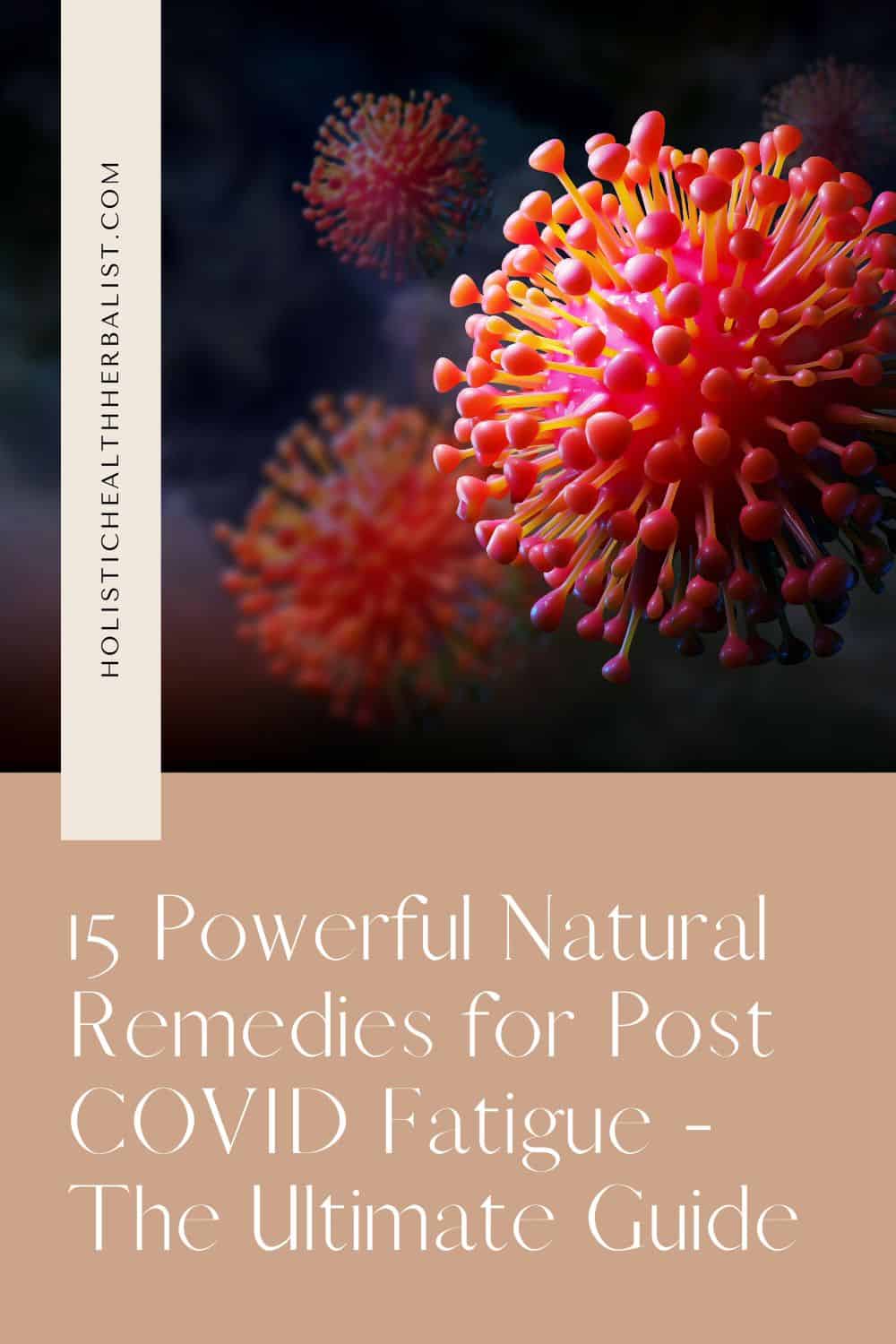
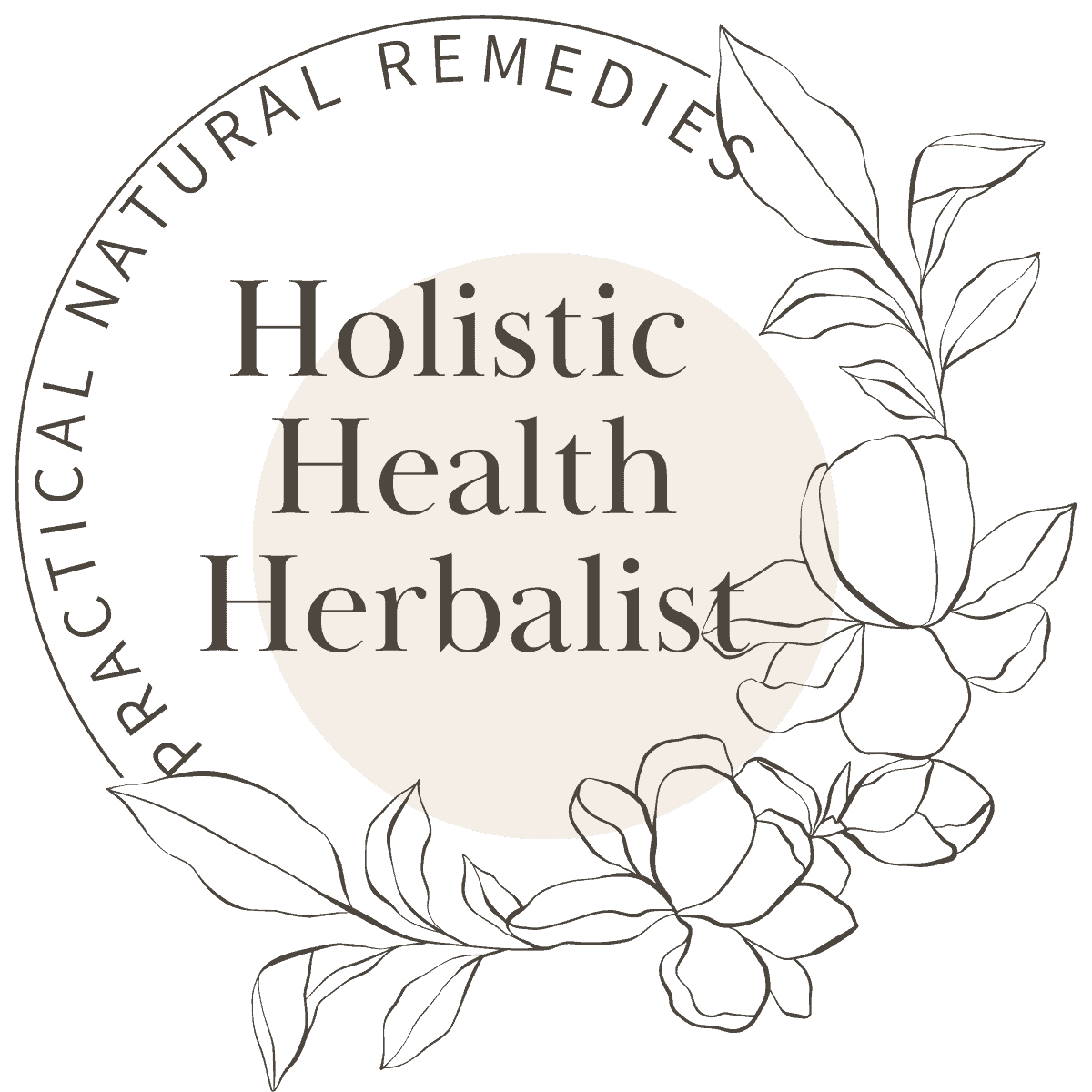


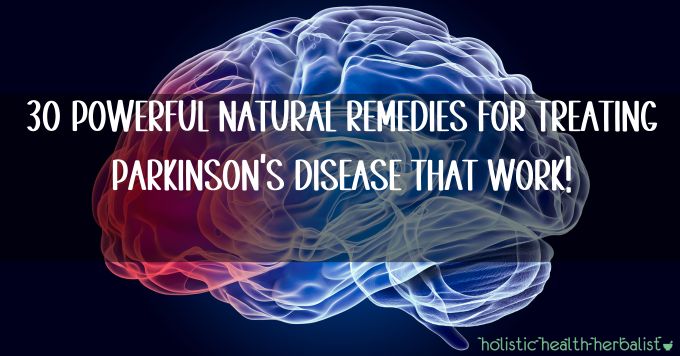
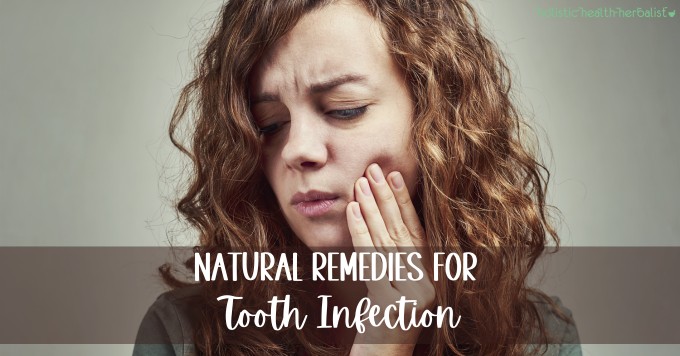
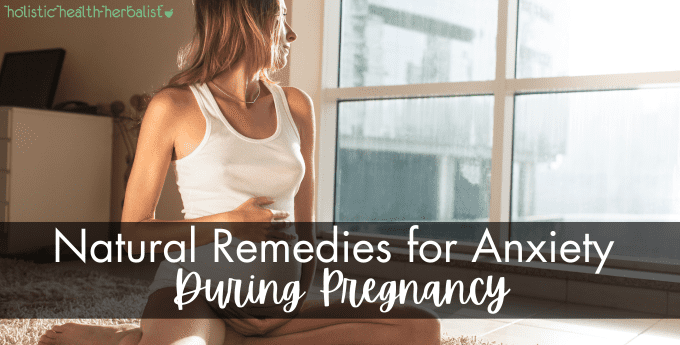
Leave a Reply